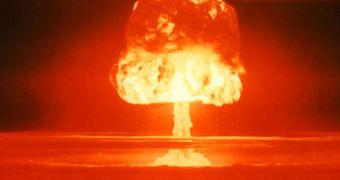Last week, the Department of Homeland Security (DHS) Domestic Nuclear Detection Office conducted a new series of exercises in the coastal waters near Puget Sound. The action took place in the security zones located at Admiralty Inlet, Bellingham Bay and North Skagit Bay. Non-intrusive small vessel radiological screenings were performed on these areas, as the DHS attempted to demonstrate and evaluate radiation detection sensors and operational protocols for small boats. These types of crafts are essential to US coastal security, as they are the first line of defense against an enemy incursion.
“Our goal was to coordinate efforts by DHS and regional partners to prevent illicit radiological or nuclear materials from entering Puget Sound waterways by way of small vessels. The exercise allowed us to operationally assess these advanced technology systems and protocols,” explains Bill Peterson, who is the Maritime Projects Manager at the US Department of Energy's (DOE) Pacific Northwest National Laboratory (PNNL).
According to officials, this specific location (Puget Sound) was selected because it is one of the largest ports in the United States, and also home of the largest ferry system. Additionally, it features a complex system of inland marine waterways. The area is located in the northwestern part of Washington state and sees huge volumes of small vessel traffic along its 125-mile border zone. First responder personnel from federal, state, local and tribal agencies also took part in the training exercises. More than 300 emergency experts attended.
“Our objective is to safely identify and interdict radiological materials as far away as possible from populated areas and critical facilities. And, while this improves the region's security, it's essential our efforts cause minimal impact to routine commercial and recreational boating activities,” adds United States Coast Guard representative, Captain Dave Crowley. Scientific equipment ranging from handheld scanners to boat-mounted instruments was used for the investigation, which also saw the implication of the FBI, the Customs and Border Protection, and the Washington Department of Health, among many others.
“This week's effort shows we can add another layer of defense and security to Puget Sound waters with minimal impact to law abiding small vessel operators,” Peterson says. The goal of the operation, to maximize detection in case of a real threat, and also to assess interdiction opportunities, has been completed, representatives from the agencies involved say.
The geographic layout of the ports were also mapped, which is very important in case emergency teams need to be deployed rapidly. The exercise is even more important when considering that Puget Sound will see even more traffic during the 2010 Olympic Games, scheduled to take place in Vancouver, Canada, in 2010.

 14 DAY TRIAL //
14 DAY TRIAL //